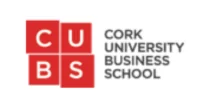On this page:
- The Moveable Feast of Money in Project Management
- Considering Inflation and Present Value in Financial Decision Making
- Evaluating Costs: Renting vs. Purchasing Equipment for Projects
- Time and Money: The Interplay of Budget, Schedule, and Return on Investment in Project Management
Money is a strange concept. For most of us, our main concern is not having enough of the stuff, but project management professionals (PMPs)® soon realize that money is very much a moveable feast. For instance, suppose we need a piece of equipment for our project and the cost of purchasing this is €10,000. However, our other option is to rent it. Annual rental costs are €2,500. We will need the equipment for five years. What should we do?
The Moveable Feast of Money in Project Management
Anyone who has been on a PMP® course will appreciate that this is not simply a case of multiplying €2,500 by five and deciding that the €12,500 rental cost means that purchasing is the way to go. A PMP® will appreciate that a dollar today is worth more than a dollar tomorrow. So, even if we are guaranteed that the rent will not increase over the five years, we have to look at inflation and work out how much our rental payments will actually cost down the line.
Considering Inflation and Present Value in Financial Decision Making
Suppose we are living in a time of high inflation, when the annual rate is likely to be 10% per annum for the foreseeable future. Then we can use Present Value calculations to translate future expenditure into today’s values. The formula to use is:
Present Value = (Future Value) / (1 + rate)number of years
Our first payment will be made now, so that will cost us €2,500.
Payment # 2: €2,500 / (1.1)1 = €2,272.72
Payment # 3: €2,500 / (1.1)2 = €2,500 / 1.21 = €2,066.12
Payment # 4: €2,500 / (1.1)3 = €2,500 / 1.331 = €1,878.29
Payment # 5: €2,500 / (1.1)4 = €2,500 / 1.4641 = €1,707.53
So our total payments, in today’s money, add up to €10,424.66.
Evaluating Costs: Renting vs. Purchasing Equipment for Projects
This still suggests that purchasing is the way to go, but what if the rental agreement includes maintenance costs and that this piece of equipment needs a €500 service every year? Now we can see that renting makes sense.
However, we have not looked at the consequences of buying the equipment up front. Have we got €10,000 to spend on this? Will the company have to borrow to pay for it? If so, we need to calculate the interest rates. If we are going to pay this back over five years, at an interest rate of 5%, then our total repayments will add up to:
€10,000 x (1 + rate)number of years
So we pay back: €10,000 x (1.05)5 = €12,762.
Again, this represents the total cost, but what does this look like in present value terms? Suppose we had to pay this back with an annual payment of €2552.63, then, using our 10% inflation rate, we get:
Payment # 1: €2552.63 / (1.1)1 = €2,320.51
Payment # 2: €2552.63 / (1.1)2 = €2552.63 / 1.21 = €2,109.61
Payment # 3: €2552.63 / (1.1)3 = €2552.63 / 1.331 = €1,917.83
Payment # 4: €2552.63 / (1.1)4 = €2552.63 / 1.4641 = €1,743.48
Payment # 5: €2552.63 / (1.1)5 = €2552.63 / 1.6105 = €1,584.99
So our total repayment, in today’s money is €9,676.42. If the interest rate you borrow money at is less than the rate of inflation, then you are actually getting money for free! This explains why tracker mortgages are causing the banks so much suffering.
The other possibility that we have not looked at yet is the situation where we have €10,000 in our war chest. What we need to consider now is the opportunity cost. What else could we do with the money? For the project manager, or the project sponsor, who wants this money for the equipment, s/he needs to make a business case for the expenditure. Essentially this means calculating the likely return on investment.
Time and Money: The Interplay of Budget, Schedule, and Return on Investment in Project Management
For those of you planning to sit the PMP® exam, return on investment is one of the Analytical Techniques used in Plan Procurement Management. In its simplest form, return on investment is the gain from the investment divided by the cost of the investment. For us PMPs®, the cost of the investment is the project budget. If the likely gains are not commensurate with the budget, then it is unlikely that the project will be approved.
Opportunity Cost: Exploring Alternatives for Project Expenditure
Experienced project managers (with or without PMPs®) will be familiar with the desire of senior management to get projects finished early. This is so that they will get an early return on their investment. Whatever about being early, a late project can be disastrous! For instance, suppose our project has a budget of €1,000,000. We want to make a profit of 10%, so the present value of what we need to charge is €1,100,000. However, our schedule says we should be finished in five years’ time, so we really need to find out what the future value of €1,100,000 is in five years’ time. This involves adjusting our present value formula:
Future Value = Present Value x (1 + rate)number of years
For our example, this is: €1,100,000 x (1.1)5 = €1,771,561
Now if our project gets into difficulties and it takes six years to deliver (and to get paid), let us see what the consequences are. Remember:
Present Value = (Future Value) / (1 + rate)number of years
So working out what €1,771,561 in six years’ time is worth, we get:
€1,771,561 / (1.1)6 = €1,771,561 / 1.772 = €999,752.26.
So, being a year late means that we have not covered the cost of the investment, let alone made a profit. All this explains why PMPs® are hired to keep projects on track in terms or budget and schedule. At the end of the day, project management is a bit like particle physics. While the physicists understand that matter and energy are equivalent, we PMPs® must appreciate that time, literally, is money.
For more information on project procurement management and all the other project management knowledge areas, please consider one of our project management training courses. To save you time and money, we run our project management courses online in our virtual classroom. Find our more by contacting us.

















